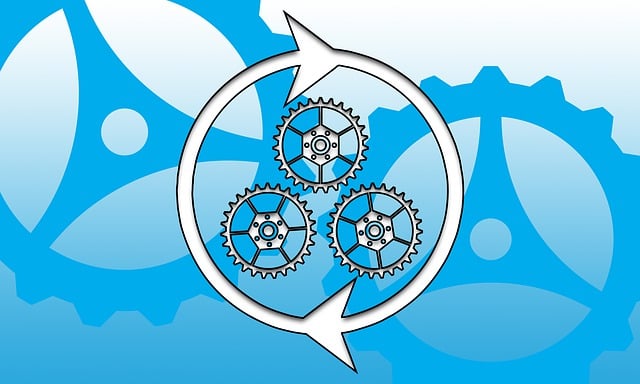In Oregon, the Department of Social and Human Services (DSHS) leads a robust legal framework for enforcing child support payments to safeguard children's financial needs. The multi-step support payment process involves applications, ordered regular payments, and legal enforcement actions like wage garnishment if non-custodial parents fail to comply. Both parents have the right to modify agreements based on significant life changes. Oregon offers assistance programs with flexible options for difficult payments and consults family law specialists for tailored guidance on navigating the legal support enforcement process successfully.
In Oregon, ensuring children receive financial support from both parents is a priority. This comprehensive guide explores the intricate aspects of enforcing support payments, delving into state laws, processes, and available resources. From understanding the Oregon support enforcement framework to exploring legal options for collecting past-due support, this overview equips parents and agencies with knowledge. Learn about the crucial role of the Oregon Department of Consumer and Business Services (DCBS) in facilitating the support payment process, as well as rights and resources for both paying and non-paying parents.
- Understanding Oregon's Child Support Enforcement Laws
- The Process of Enforcing Support Payments in Oregon
- Role of the Oregon Department of Consumer and Business Services (DCBS)
- Legal Options for Collecting Past-Due Support
- Rights and Resources for Non-Paying Parents
Understanding Oregon's Child Support Enforcement Laws

In Oregon, the enforcement of child support payments is a critical aspect of ensuring financial stability for children and their families. The state has established a comprehensive legal framework to facilitate and protect the support payment process. These laws aim to hold non-custodial parents accountable for contributing to their children’s well-being financially. By enforcing support payments, Oregon seeks to provide resources for essential needs, including healthcare, education, and overall nurturing of the child.
The Oregon Department of Social and Human Services (DSHS) plays a pivotal role in managing and enforcing child support. They utilize various methods, from administrative orders to legal proceedings, to ensure that support payments are made on time and in full. Parents involved in the support process have rights and responsibilities; understanding these is crucial for navigating the system effectively. Knowledgeable parents can actively participate in discussions, appeal decisions if needed, and explore alternative payment plans to meet their obligations legally and within their means.
The Process of Enforcing Support Payments in Oregon

In Oregon, enforcing support payments is a multi-step process designed to ensure that children receive the financial support they need from their parents or legal guardians. The state’s Department of Social and Human Services (DSHS) plays a pivotal role in this matter by managing child support collections and disbursements. When a parent falls behind on support payments, DSHS initiates legal support enforcement procedures, which may include wage garnishment, tax intercepts, and the suspension of driver’s licenses or professional licenses.
The support payment process involves several key components. First, an individual or entity (often the custodial parent) applies for child support through DSHS. Once approved, the non-custodial parent is ordered to make regular payments according to a set schedule. Failure to comply with these orders can lead to intensified legal enforcement actions, such as those mentioned above. Throughout this process, both parents have the right to seek modifications to their support agreements if significant life changes occur, ensuring fairness and adaptability in support arrangements.
Role of the Oregon Department of Consumer and Business Services (DCBS)

The Oregon Department of Consumer and Business Services (DCBS) plays a pivotal role in enforcing support payments within the state. As the primary agency tasked with Oregon support enforcement, DCBS is responsible for ensuring that child support obligations are met, promoting financial stability for families, and maintaining the integrity of the support payment process. They achieve this through a range of measures, including tracking and collecting past-due payments, facilitating communication between parents, and offering resources to help individuals navigate the complexities of the legal support enforcement system.
DCBS employs various tools to enforce support legally, such as issuing notices, suspending driver’s licenses, and garnishing wages or bank accounts. They also provide support services like case management, mediation, and education programs to assist families in resolving issues related to child support. By coordinating these efforts, DCBS strives to create a seamless and effective Oregon child support enforcement system that benefits all involved parties.
Legal Options for Collecting Past-Due Support

When dealing with past-due support in Oregon, individuals and families have several legal options available to them through the state’s support enforcement process. This mechanism is designed to ensure that both parents contribute equitably to the financial well-being of their children. The first step often involves contacting the Oregon Department of Human Services (DHS) to initiate the support enforcement process. This can include petitioning for wage garnishment, where a portion of the non-paying parent’s income is withheld and applied towards outstanding support.
Additionally, legal action such as filing a motion in court or referring the case to an attorney specializing in family law can be taken to enforce support payments. These legal avenues aim to protect the rights of children and their custodial parents by ensuring timely payment of child support. Oregon’s support enforcement agency works collaboratively with courts and other state agencies to resolve cases efficiently, offering a structured approach to manage and collect past-due support payments effectively.
Rights and Resources for Non-Paying Parents

In Oregon, non-paying parents have rights and resources available to them, even as the state works to enforce support payments. Parents who are struggling to make their child support payments should know that there are options for assistance and potential adjustments to their payment plans. The state offers various programs aimed at making the support payment process more manageable, such as reduced payment amounts, temporary suspensions during financial hardships, and flexible repayment arrangements. These initiatives recognize that life circumstances change, and it’s essential to have a supportive system in place.
Legal support enforcement in Oregon is designed to be fair while ensuring children receive the financial support they need. Parents who believe they may qualify for adjustments or have questions about their rights should seek legal advice from qualified professionals who specialize in family law. Understanding one’s options and navigating the support payment process with guidance can lead to more effective enforcement of support payments, fostering a healthier environment for all involved.






